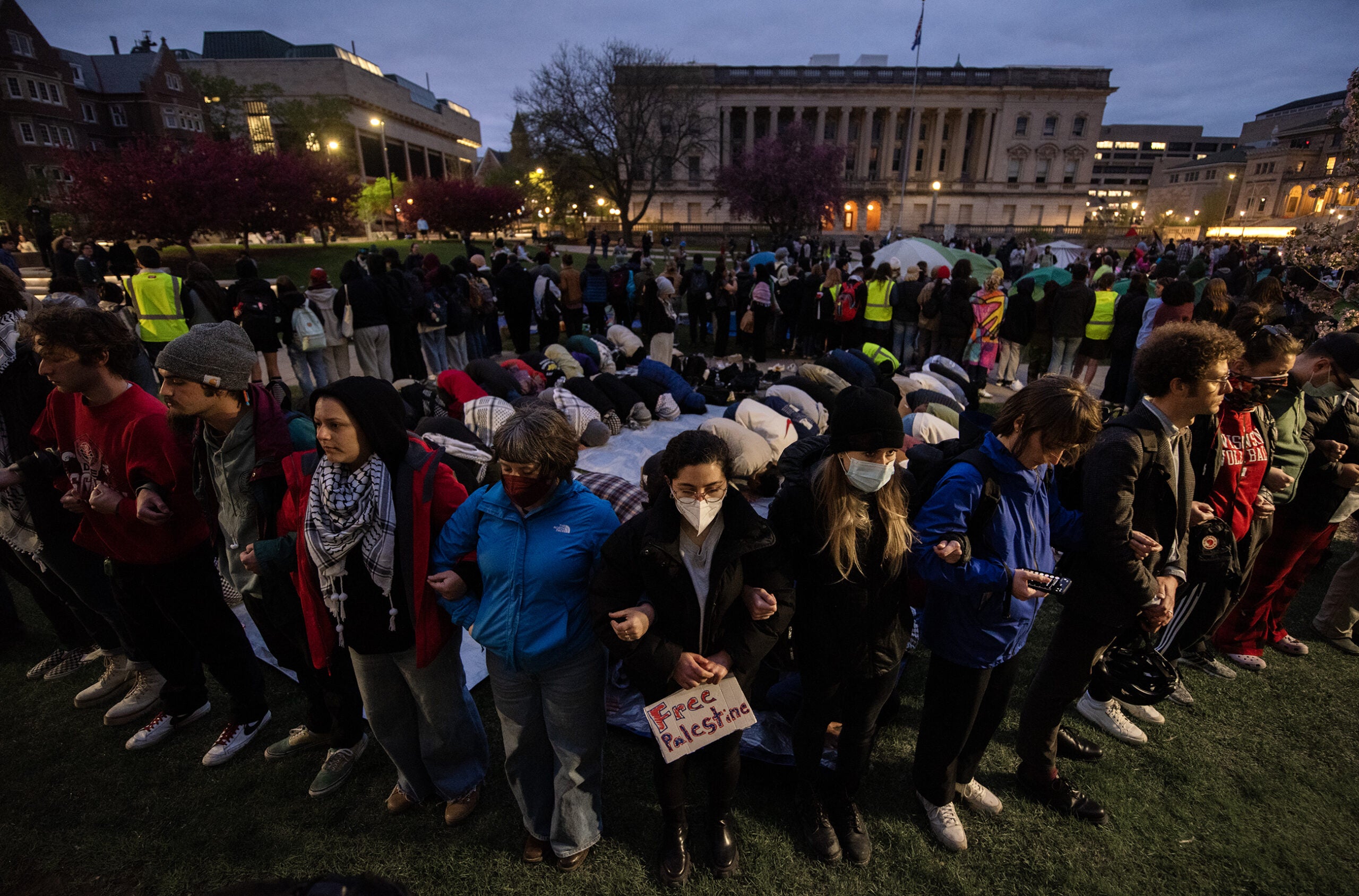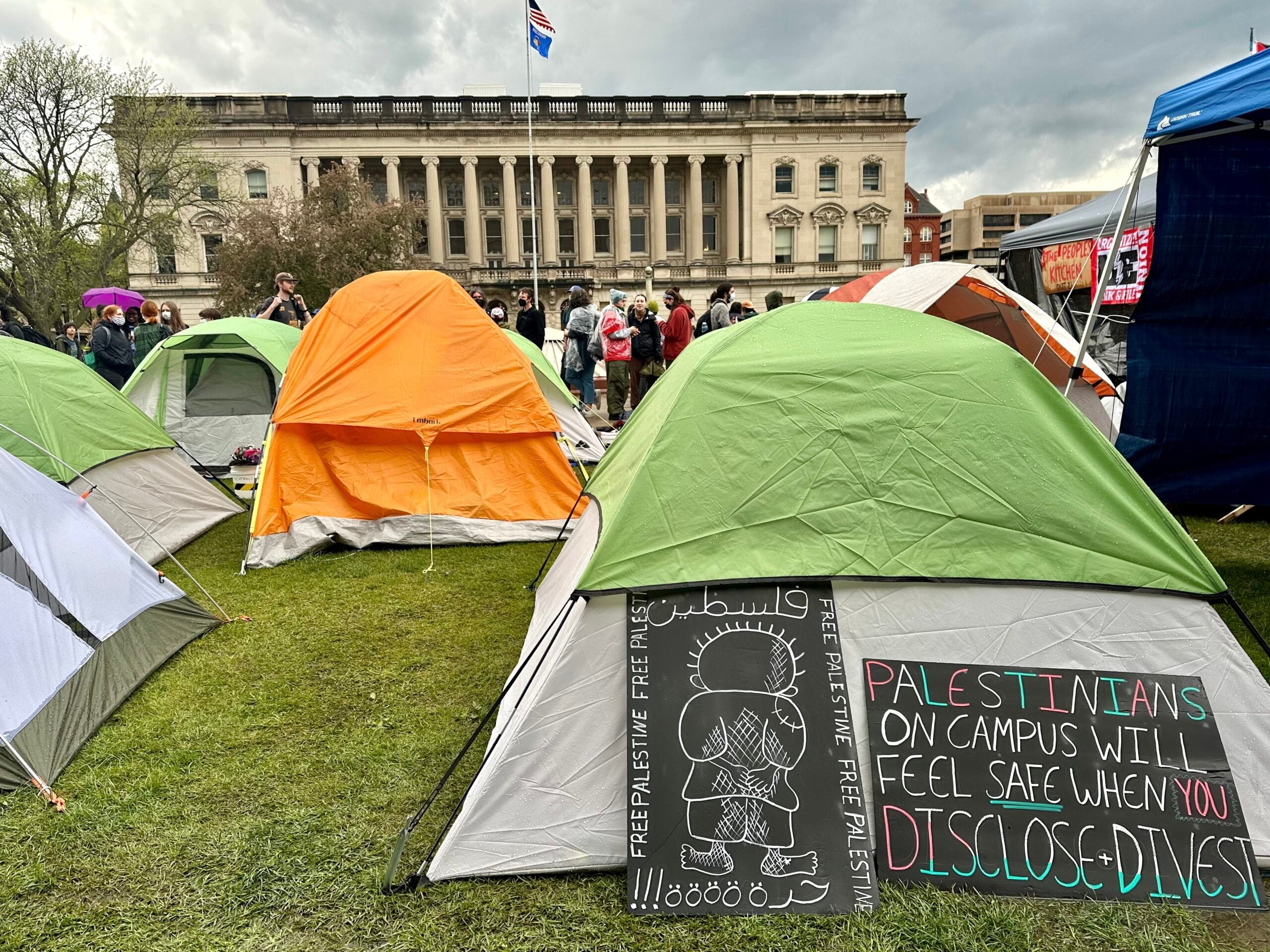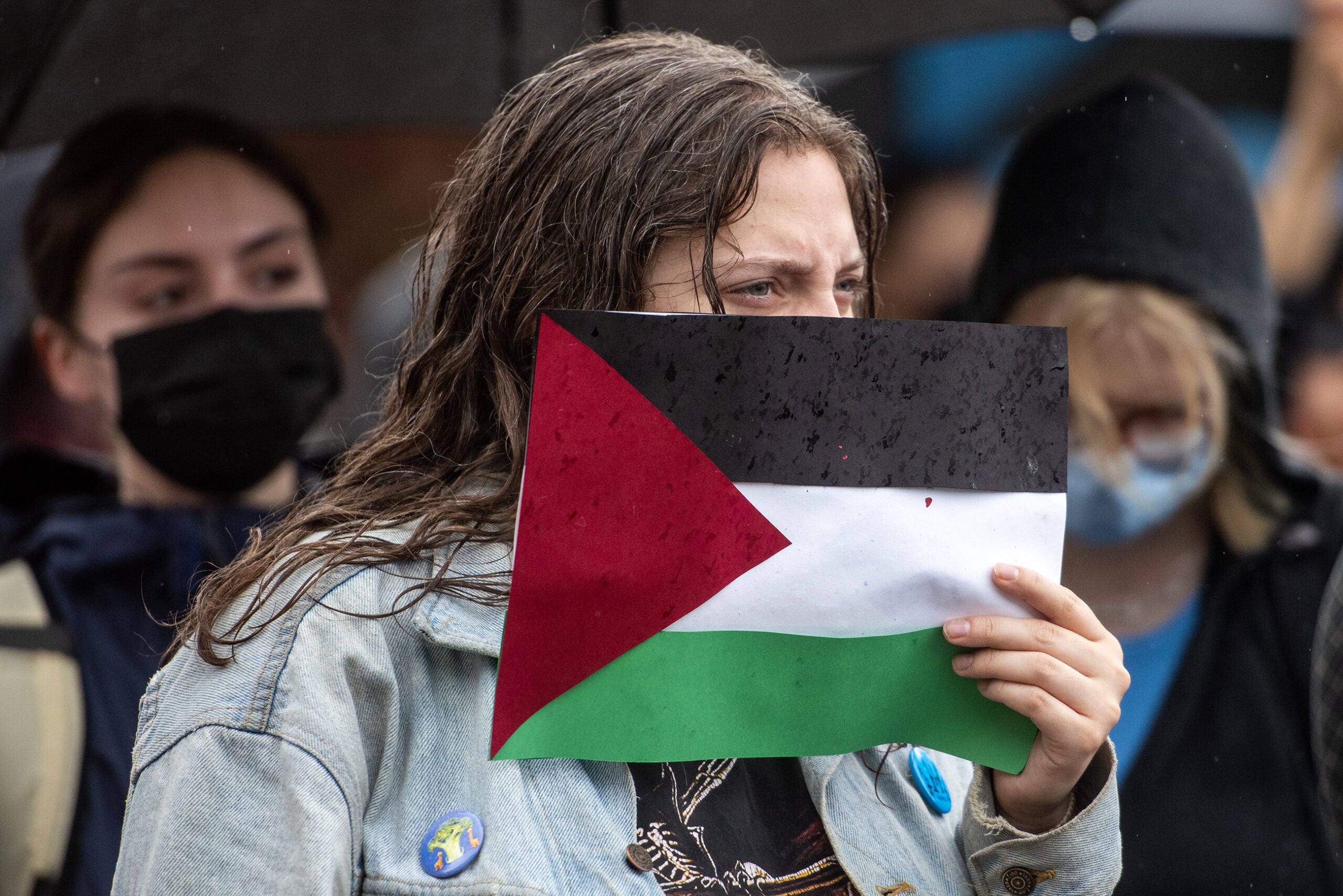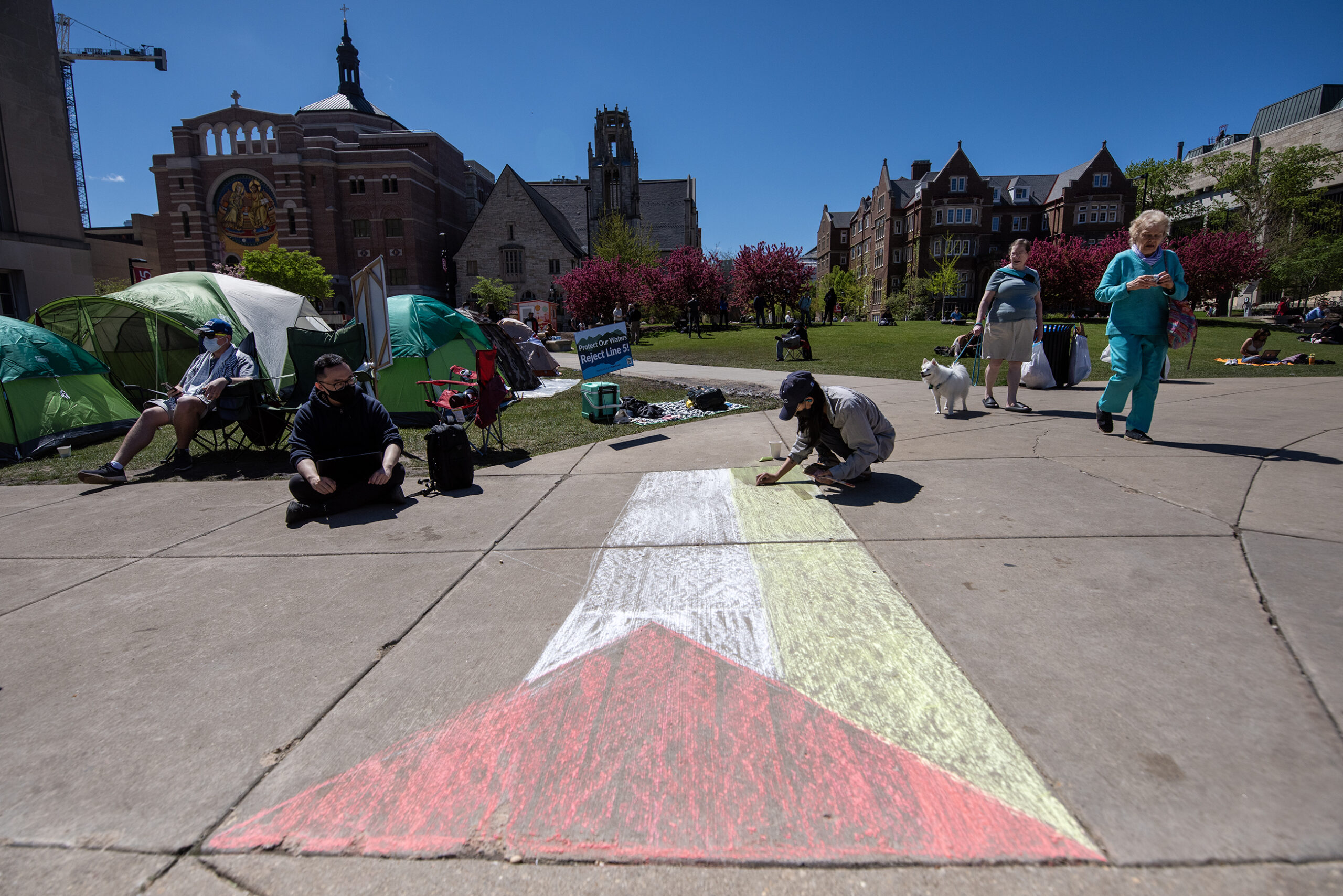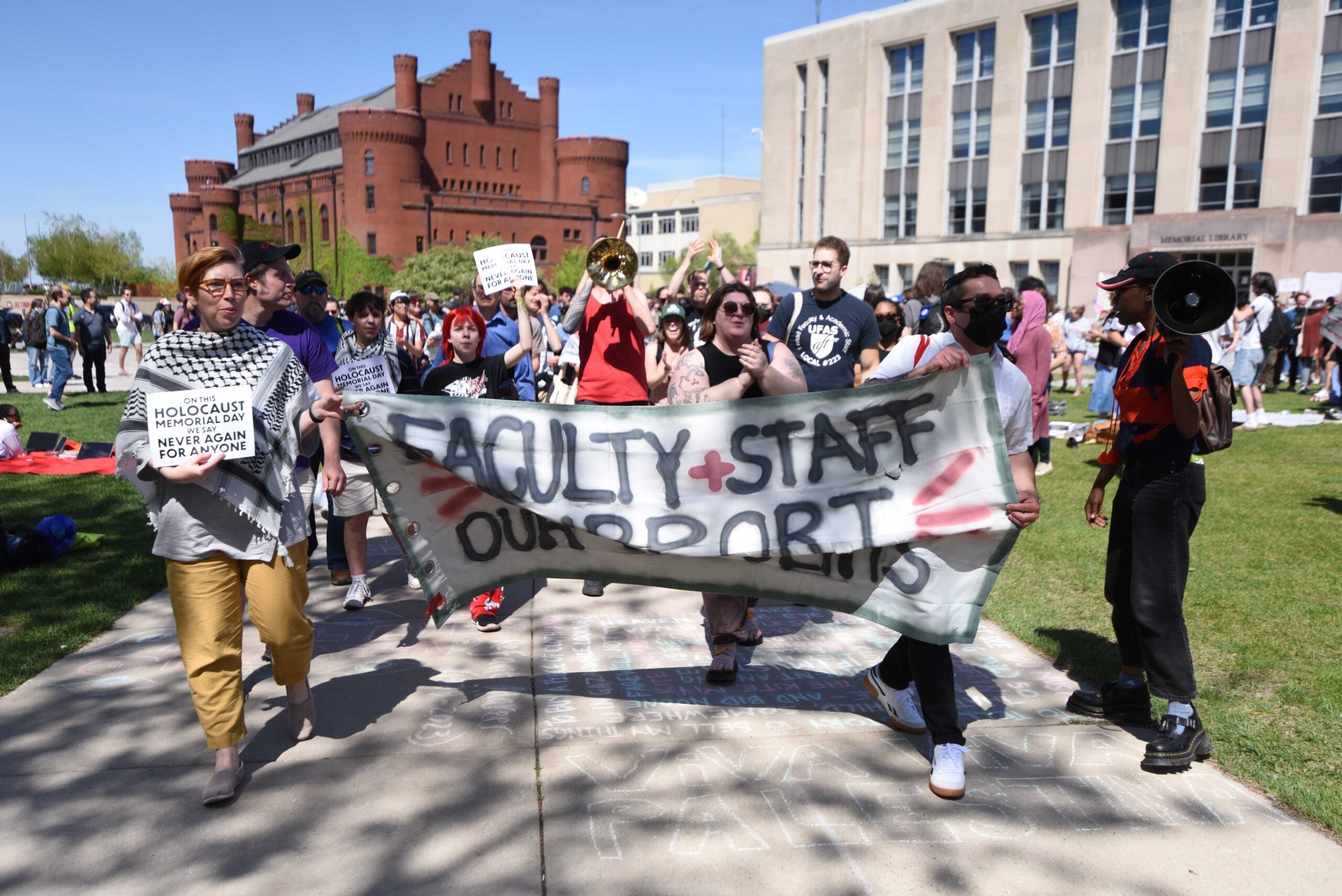Students at the Universities of Wisconsin in Madison and Milwaukee joined the nationwide campus movement demanding their schools to support Palestinian liberation and divest from pro-Israel companies and causes. Both universities held rallies and established encampments Monday.
Students at the flagship campus in Madison rallied on the school’s iconic Library Mall, with about 300 people in attendance, according to campus police estimates. Faculty and community activists were also present.
After speeches and chants, several students pitched tents — two weeks after students at Columbia University in New York City launched an encampment that has since led to a nationwide campus movement and faced considerable crackdown.
Stay informed on the latest news
Sign up for WPR’s email newsletter.
“We are here to demand that our university divest from the ongoing war to end its complicity with the mass violence we have seen perpetuated against the people of Palestine over the past six months and over the past 75 years,” said Dahlia Saba, a first-year graduate student in electrical engineering and activist with Students for Justice in Palestine.
At UW-Milwaukee, about 200 people rallied and gave speeches. Shortly before noon, students there set up tents outside the graduate school.
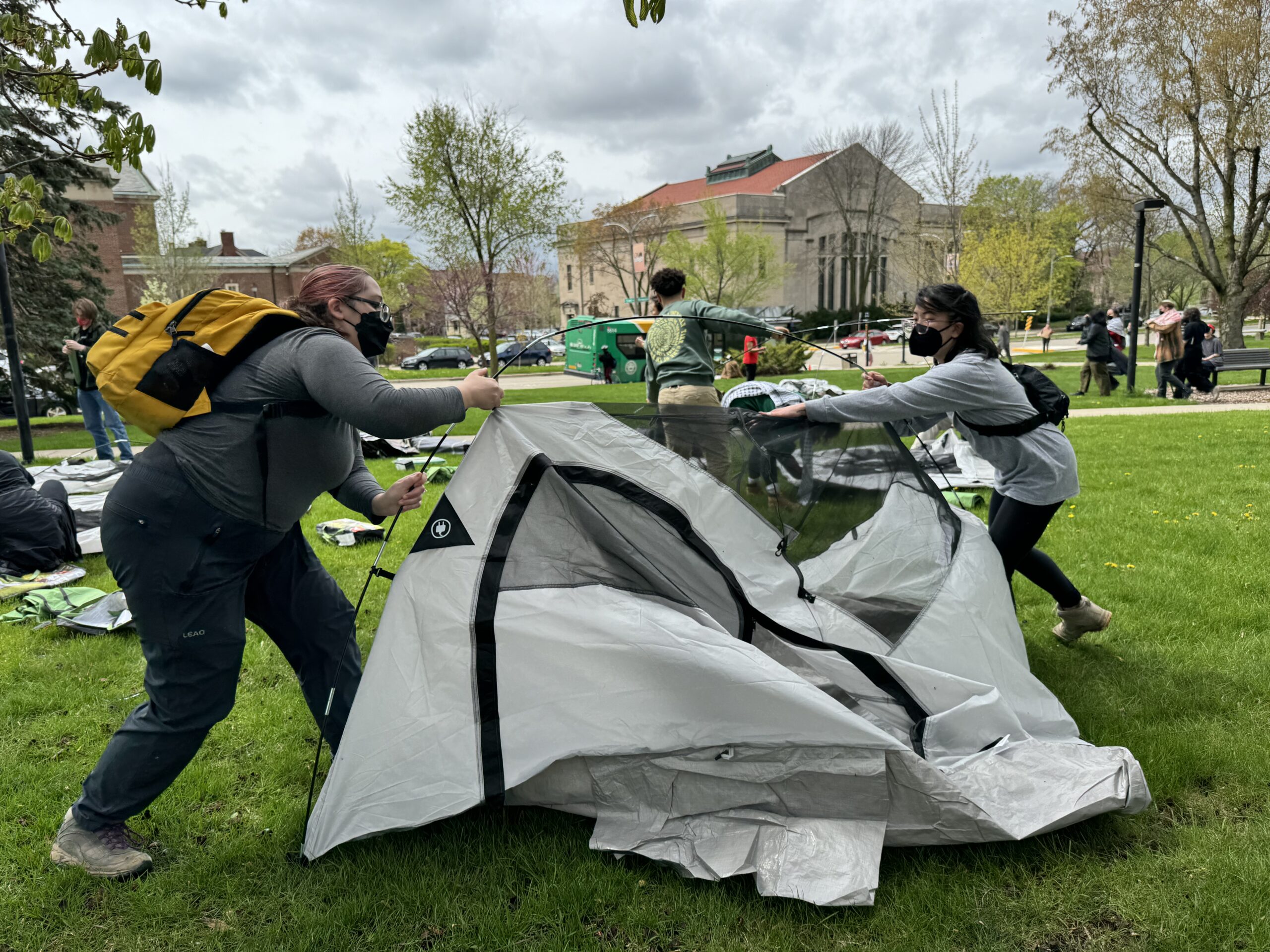
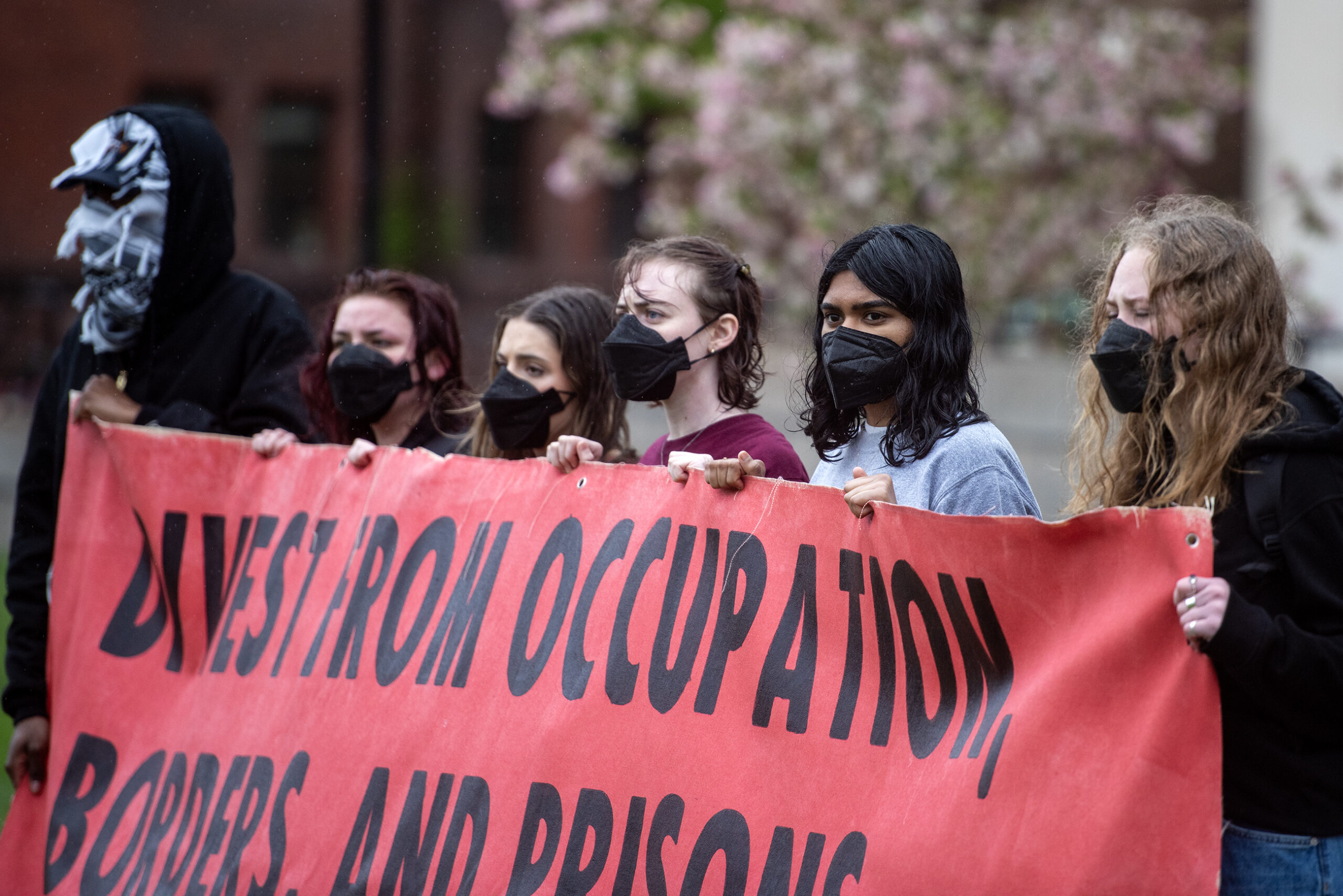
The protests come more than six months after Hamas militants entered Israel and killed about 1,200 people. In response, the Israeli army led an incursion that has to date killed about 33,000 people, according to Gaza health officials, initiating what human rights group call a “humanitarian catastrophe.” Gaza officials say more than 20,000 of the dead have been women and children. The Israeli military says about 13,000 Hamas fighters have been killed.
Monday’s protests come days after the discovery of mass graves outside Gazan hospitals, which the U.N. high commissioner for human rights has said raises concerns about possible war crimes.
UW-Madison says camping on campus is forbidden
Over the weekend, UW-Madison Dean of Students Christina Olstad sent a campus-wide email reminding students about the school’s regulations on protest, which includes a ban on camping.
A spokesperson for the university did not immediately respond to WPR’s questions, including about whether and when they would remove the tents.
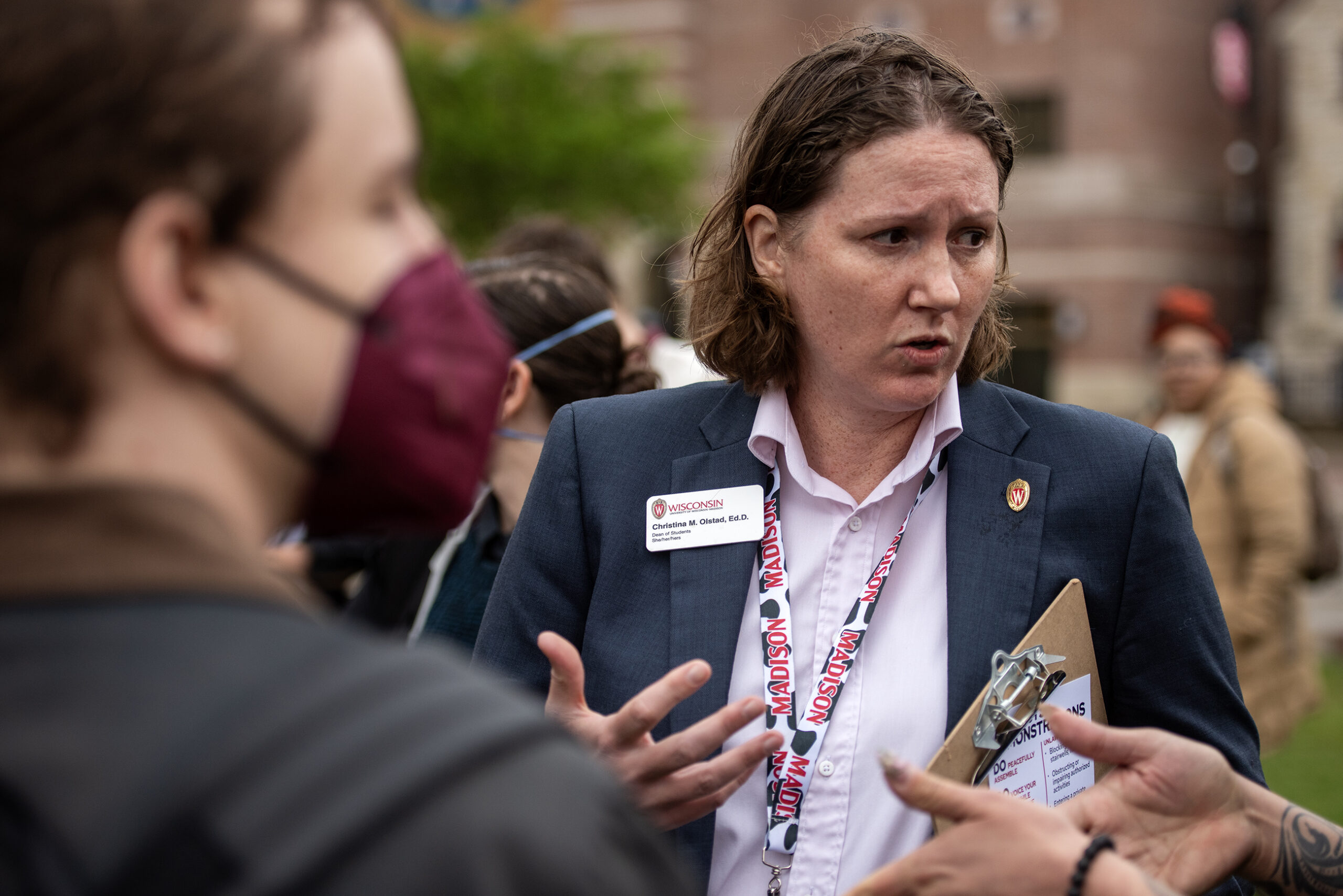
About a half-dozen university police officers stood around the rally’s perimeter. One said the police had not been given express instructions about what to do with the tents.
“People have the right to express their constitutionally-protected beliefs,” the officer said. “The rest we’ll deal with when we have to.”
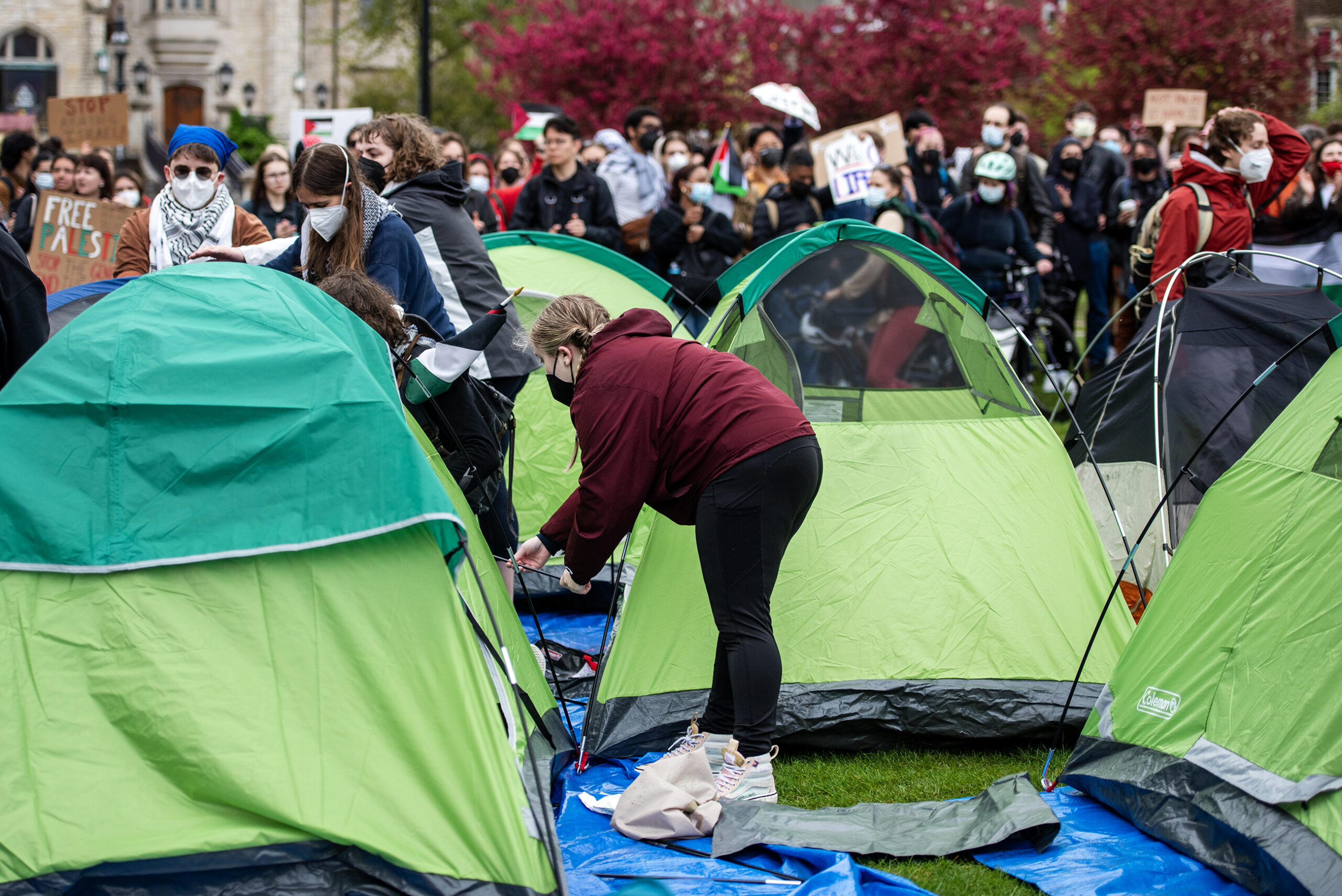
Asifa Quraishi-Landes, a professor at the UW-Madison School of Law, is part of a group of faculty that says it wants to liaise with the administration in support of their students. She said the rules about encampment “hit a little hard.”
“We’ve noticed that (the rules about tents) are not uniformly enforced with tailgating and other kinds of events where there’s arguably encampment and tenting and sleeping bags and things like that,” she said. “So it felt a little focused on the content, not the means, because it doesn’t seem to be all uniformly enforced.”
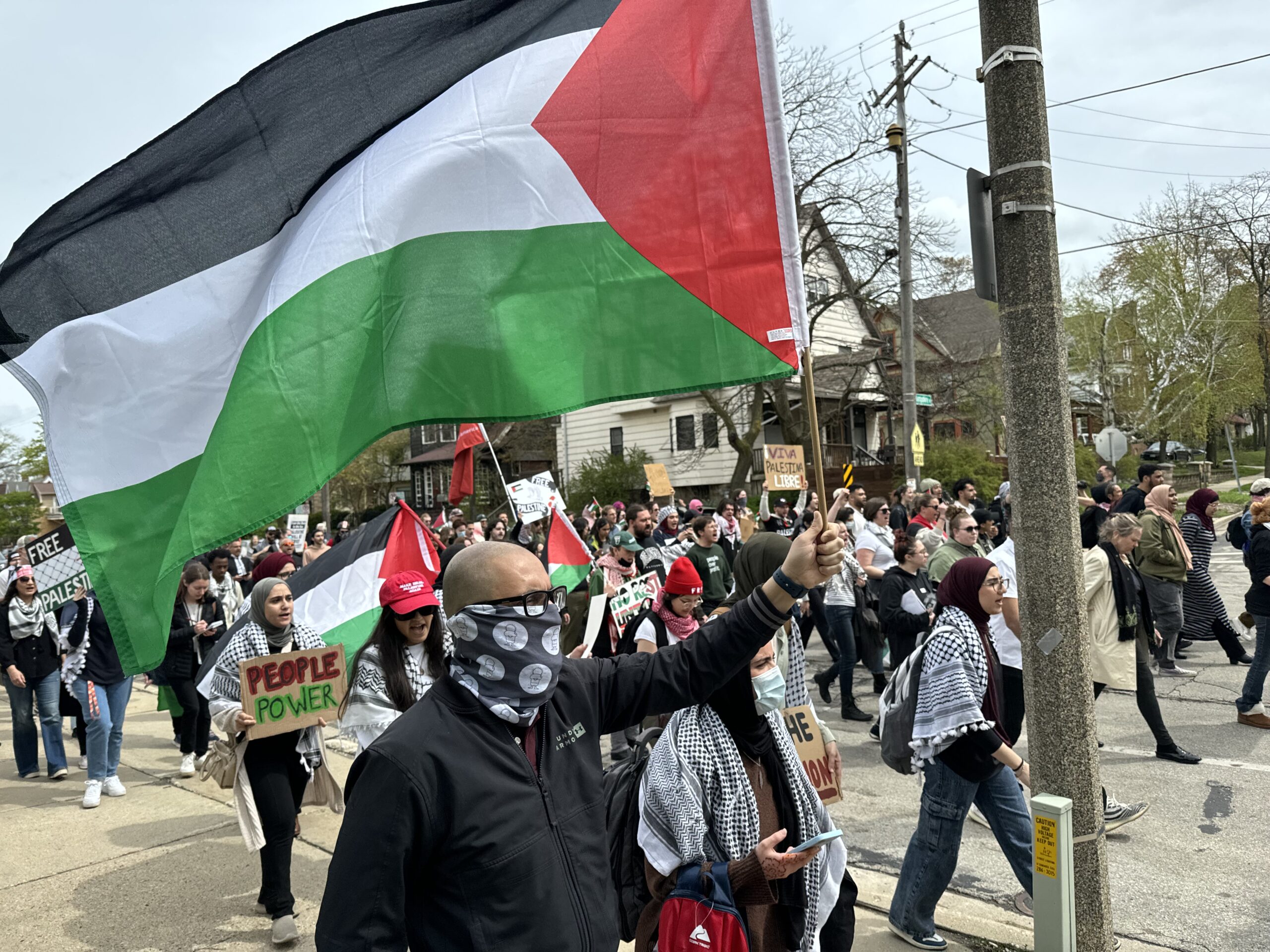
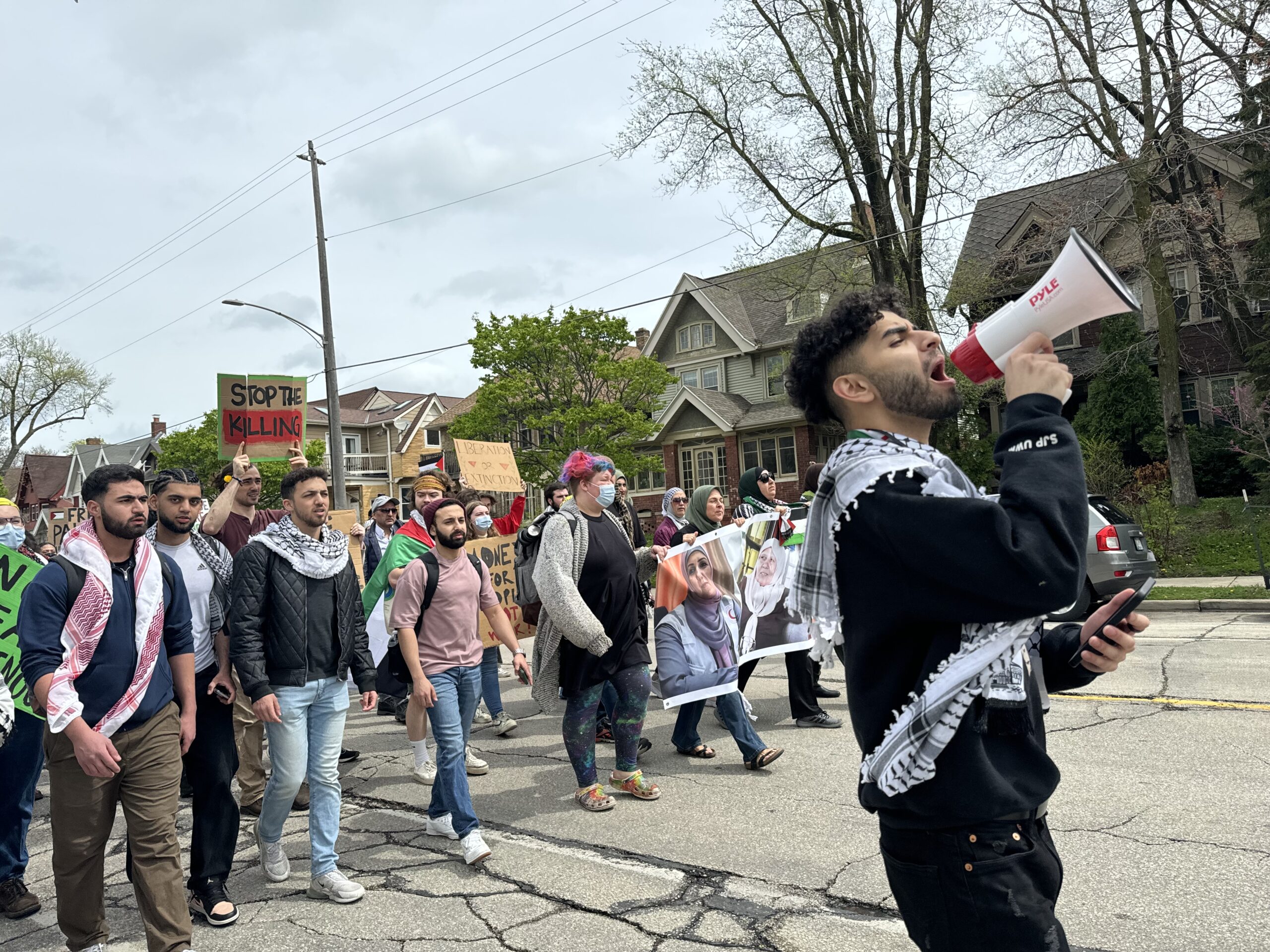
On Monday, the UW-Milwaukee dean of students sent out a reminder of campus protest policies, too. In a statement, UW-Milwaukee spokesperson Angelica Duria called the encampments a violation of state law regulating camping activities.
“Supporters of both the Israeli and Palestinian causes have made their voices heard on our campus, as is their right guaranteed by the First Amendment,” Duria stated. “And UWM has been steadfast in respecting their right to free speech while also maintaining UWM’s core mission of providing a safe and welcoming environment for our students, employees and visitors.”
The ACLU of Wisconsin released a statement saying university administrators were left with a choice in Wisconsin that “will determine which side of history they will be on.”
“In Wisconsin, where we believe education is a public good and builds up our communities, our futures, and the next generation of leaders, we cannot betray our history as leaders and defenders of learning,” read a written statement from ACLU of Wisconsin Executive Director Melinda Brennan. “Freedom of speech and peaceful assembly must not be undermined in places of learning and discovery.”
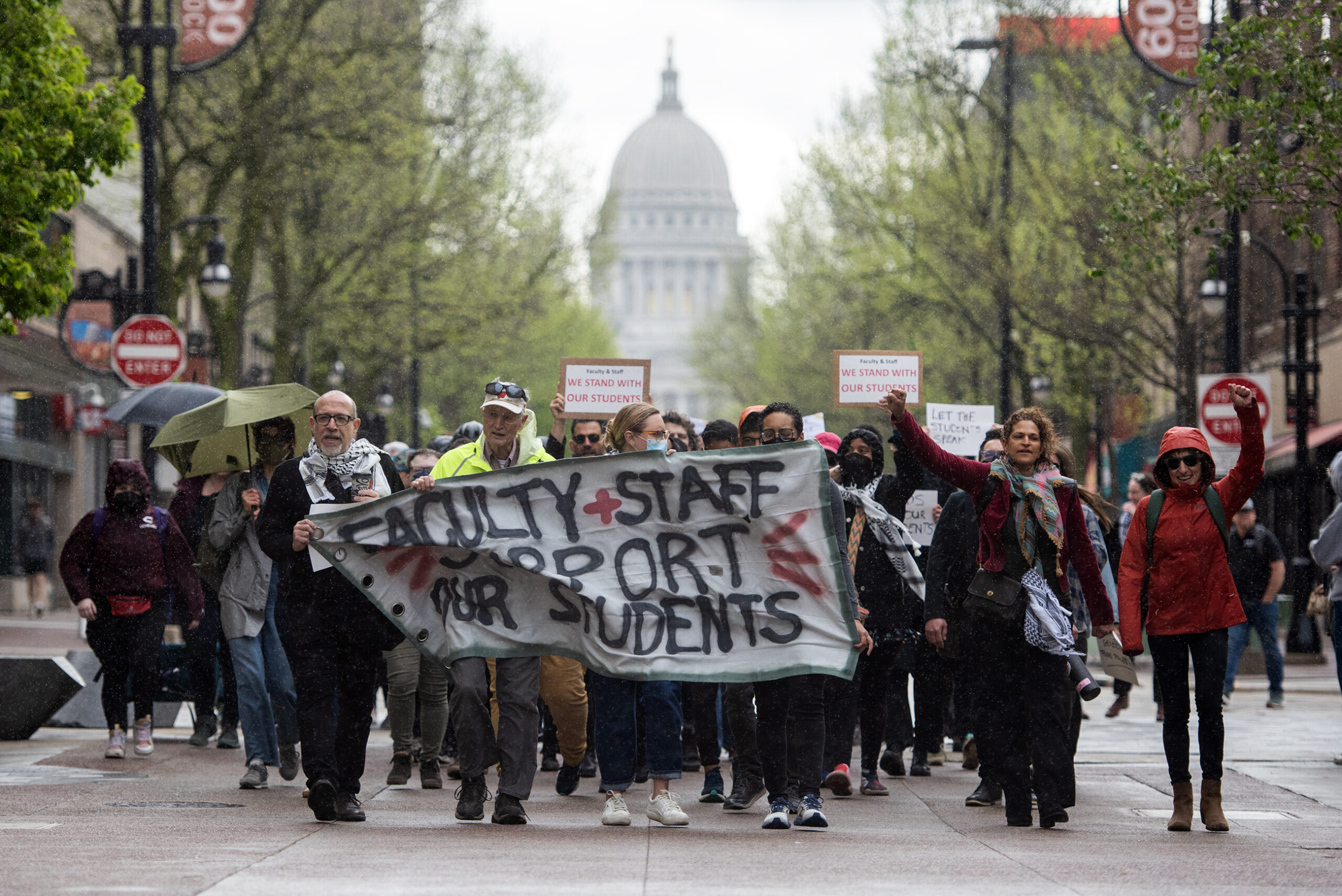
Wisconsin campuses part of a nationwide movement
The campuses join dozens of other schools across the country that have established encampments in recent weeks, with some facing arrest, suspension and eviction from campus housing.
The movement started at Columbia, when students set up tents on a central quad on April 17. That protest has sparked similar movements at dozens of other campuses, including New York University, the University of Southern California, Harvard, Yale and the Massachusetts Institute of Technology.
Consequences have been fierce. About 100 students at Columbia have been arrested, and on Monday, the university told students they had to clear out by the afternoon or be suspended. Students at more than a dozen schools have been arrested, including at NYU, Yale and Emory University in Georgia, according to data collected by Axios.
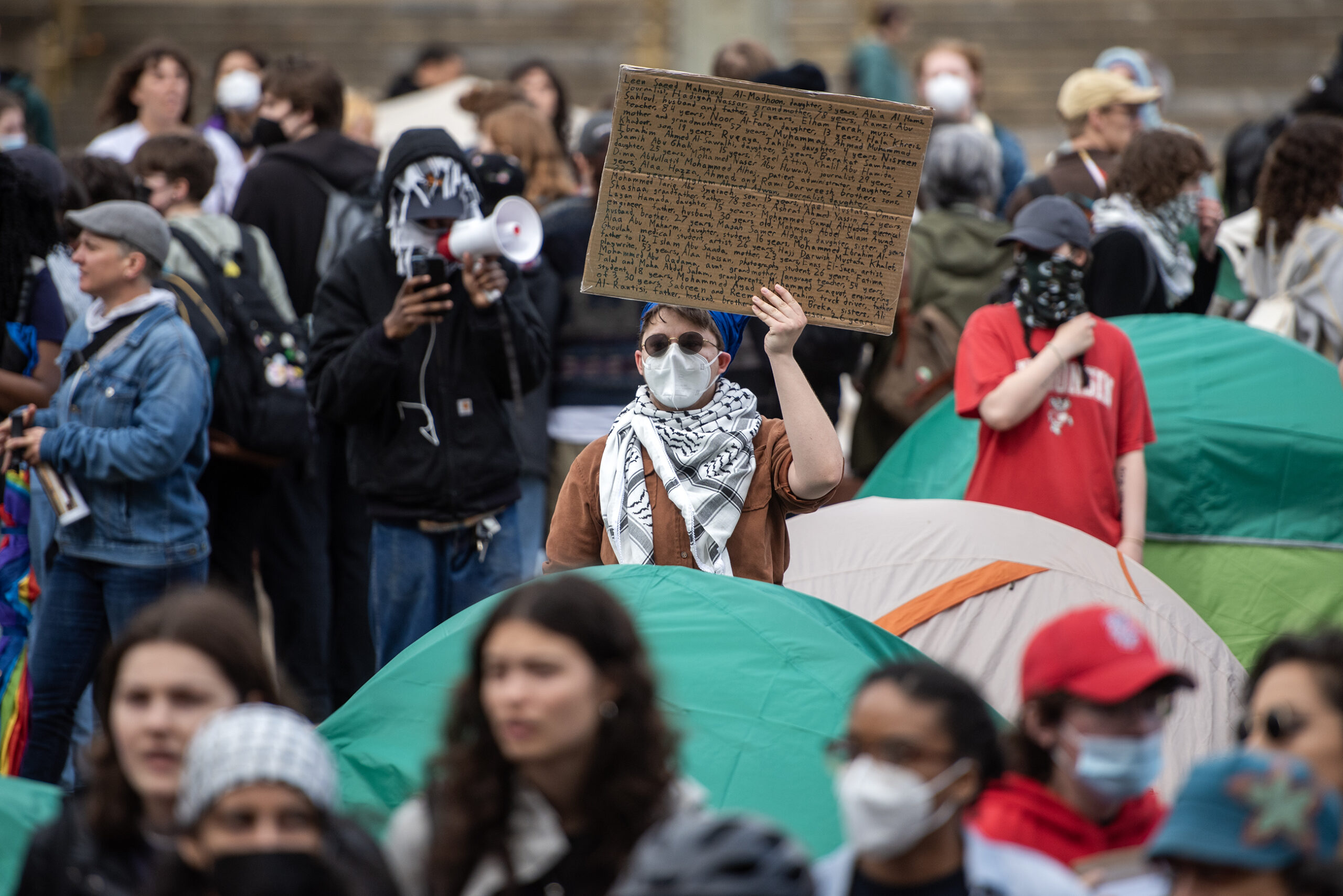
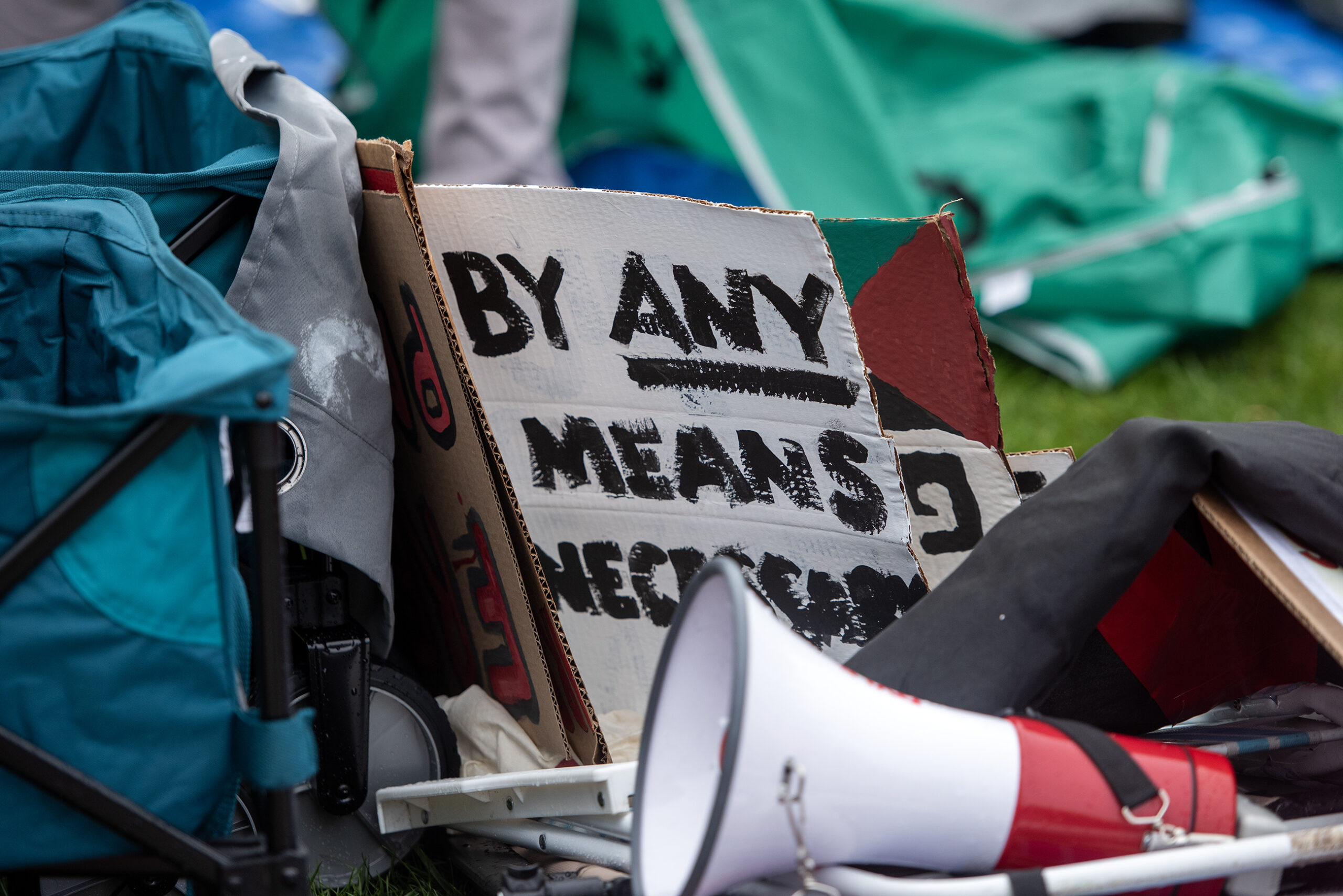
Elsewhere, students have been suspended or evicted from campus housing. The protests themselves have been largely peaceful, but some counter protesters, Jewish groups and pro-Israel groups have described them as inherently intimidating.
Some chants, including the use of “From the river to the sea,” are polarizing. Pro-Palestinian activists say it’s a call for liberation, while supporters of Israel say it’s a call to wipe Israel off the map. Likewise, chants to “globalize the Intifada” are interpreted by some pro-Palestinian activists as a call to resist occupation and state violence, and by some pro-Israel and Jewish groups as a call for antisemitism and violence.
Both chants were part of the UW-Madison rally, alongside calls for the university to divest funding for weapons manufacturers and Israeli tech companies.
As of noon Monday, the protests in Wisconsin remained peaceful and undisturbed. At the Madison campus, protesters began their rallies in the rain. In Milwaukee, students marched along residential streets around campus before returning to set up their tents.
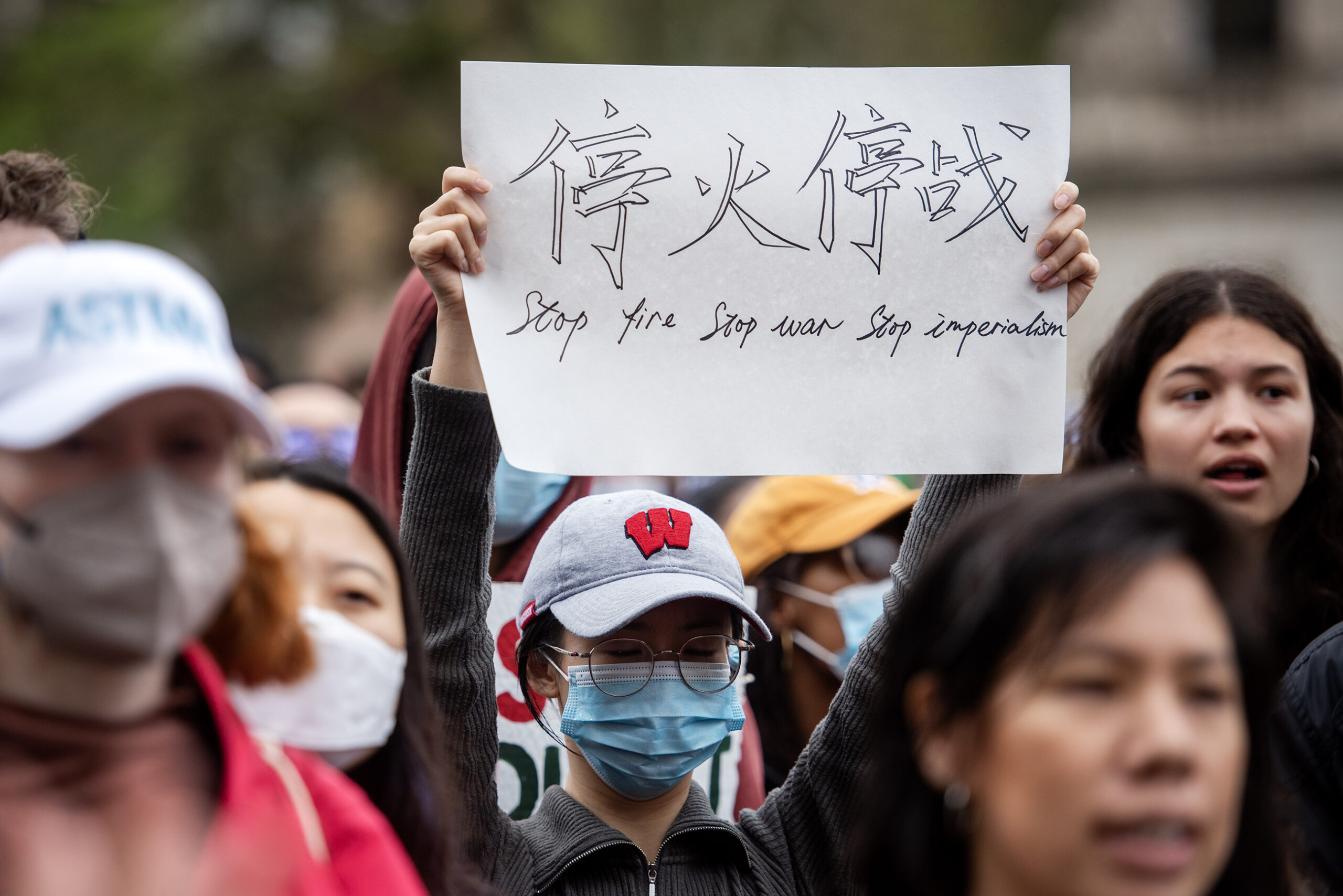
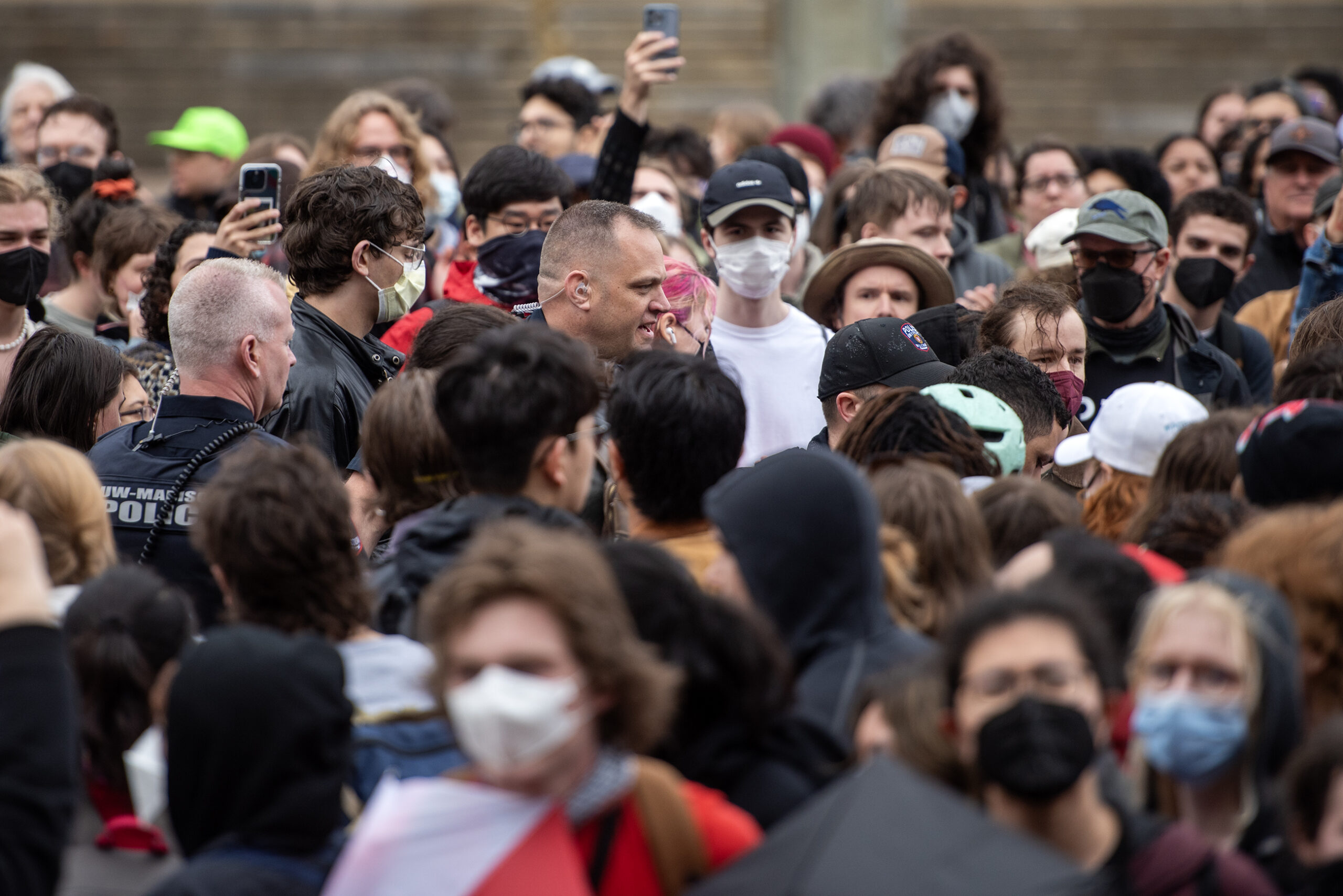
Some lawmakers, including Rep. Francesca Hong, D-Madison, and Sen. Chris Larson, D-Milwaukee, were at the UW-Madison protest.
Others took to social media to call for an end to the protests.
“I pray you will get this handled NOW so our students can finish their finals and the term in peace and safety!,” Rep. Barbara Dittrich, R-Oconomowoc, tweeted at UW-Madison Chancellor Jennifer Mnookin.

At some campuses, formal counterprotests from Jewish and pro-Israel students and community members have cropped up in response. In Madison, there was no such official event. But later in the afternoon, a few dozen Jewish students gathered nearby to watch what Ben, a sophomore who did not share his last name, called a “surreal” event.
Ben said Monday’s Madison protest didn’t worry him, but other campus protests, where there have been reports of antisemitism, do.
“A lot of them … want to make Jewish people scared,” he said. “They don’t want us here. They want us to leave.”
Madeline, another sophomore who didn’t share her last name, said the experience made her disappointed in university leadership.
“At a time when so many students on maybe either end are afraid — it’s such a polarizing experience — and for the administration to just feel like they’re just sitting there and just watching it unfold, it almost feels irresponsible, like they don’t truly care,” she said.
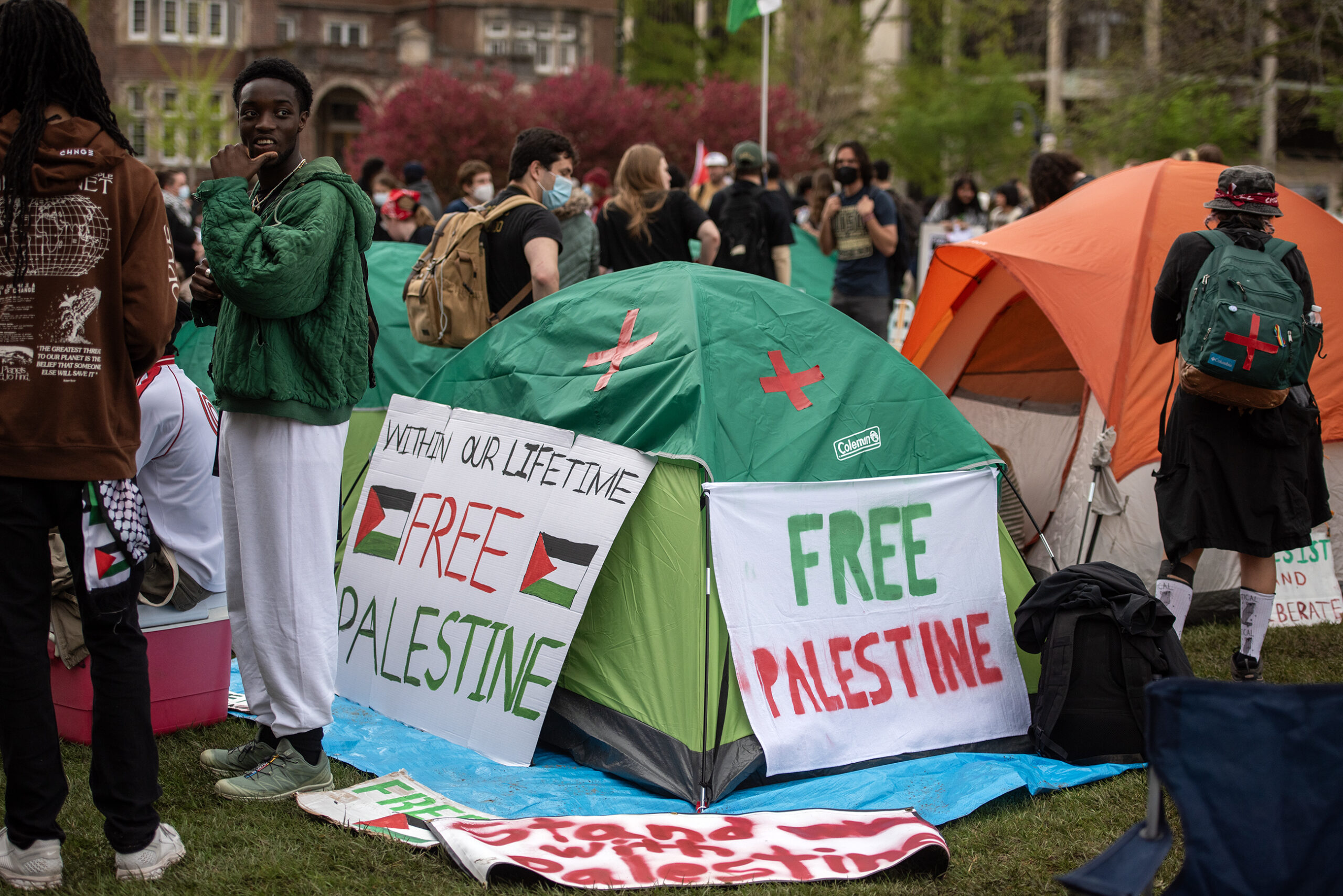
Late Monday evening, UW-Madison administrators, including Chancellor Jennifer Mnookin, released a statement, saying students have the right to protest but not to erect tents. They said they would meet with student organizers once the tents came down.
“Once compliance with campus policy and state law has been achieved and tents have been removed from campus property, we, as campus leaders stand ready to meet with campus-based organizers to discuss their demands,” the statement reads.
“We continue to ask the protesters to voluntarily comply with state law against tents and encampments on university property,” administrators continued. “We hope that protestors will elect to avail themselves of the many alternative ways to protest and to express their views without tents or encampments on our campus grounds.”
Editor’s note: Evan Casey contributed reporting from Milwaukee. This story has been updated to provide additional context around the death tolls in Israel and Gaza.
Wisconsin Public Radio, © Copyright 2025, Board of Regents of the University of Wisconsin System and Wisconsin Educational Communications Board.
